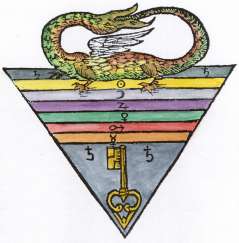
Alchemy

Alchemy was practiced in Mesopotamia, Ancient Egypt, Persia, India, Japan, Korea and China, in Classical Greece and Rome, in the Muslim civilizations, and then in Europe up to the 19th century in a complex network of schools and philosophical systems spanning at least 2,500 years.
In the history of science, alchemy refers to both an early form of the investigation of nature and an early philosophical and spiritual discipline, both combining elements of chemistry, metallurgy, physics, medicine, astrology, semiotics, mysticism, spiritualism, and art all as parts of one greater force.
Alchemy is an ancient path of spiritual purification and transformation; the expansion of consciousness and the development of insight and intuition through images. Alchemy is steeped in mysticism and mystery. It presents to the initiate a system of eternal, dreamlike, esoteric symbols that have the power to alter consciousness and connect the human soul to the Divine.
It is part of the mystical and mystery traditions of both East and West. In the West, it dates to ancient Egypt, where adepts first developed it as an early form of chemistry and metallurgy. Egyptians alchemists used their art to make alloys, dyes, perfumes and cosmetic jewelry, and to embalm the dead.
The early Arabs made significant contributions to alchemy, such as by emphasizing the mysticism of numbers (quantities and lengths of time for processes). The Arabs also gave us the term 'alchemy', from the Arabic term 'alchimia', which loosely translated means 'the Egyptian art'.
During medieval and Renaissance times, alchemy spread through the Western world, and was further developed by Kabbalists, Rosicrucians, astrologers and other occultists. It functioned on two levels: mundane and spiritual. On a mundane level, alchemists sought to find a physical process to convert base metals such as lead into gold. On a spiritual level, alchemists worked to purify themselves by eliminating the "base" material of the self and achieving the 'gold' of enlightenment.
By Renaissance times, many alchemists believed that the spiritual purification was necessary in order to achieve the mundane transformations of metals. ( We at Crystalwell believe this be true, As Within so Without )
The alchemists relied heavily upon their dreams, inspirations and visions for guidance in perfecting their art. In order to protect their secrets, they recorded diaries filled with mysterious symbols rather than text. These symbols remain exceptionally potent for changing states of consciousness.
above re-printed from Crystalinks
Continue to Alchemical Imagery